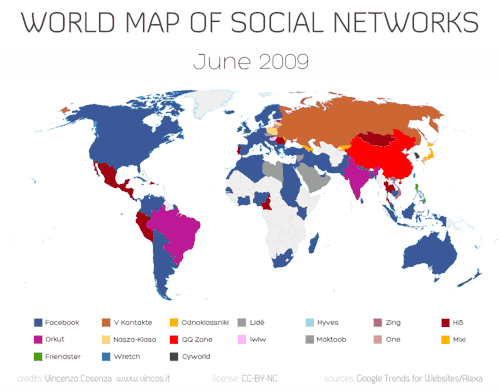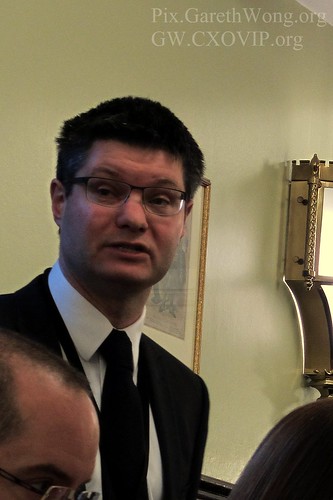
Monday 30 January 2012
Saturday 28 January 2012
Very interesting... but hows that related to % of people that 'transact' online??? World Map of Social Networks | Vincos Blog
Very interesting... but hows that related to % of people that 'transact' online???

Thursday 26 January 2012
Lord Wolfson at Conservative China group breakfast meeting. brilliant insights shared, honest & direct, how it should be!

Lord Wolfson at Conservative China group breakfast meeting. IMG_4492, a photo by garethwong on Flickr.
Many thanks for Jeremy, the conservative China group & Huawei's sponsoring..
Lord Wolfson's shared some best insights & no hold bar directness really won me over, he might be my most favourite Lord yet (one of the youngest I met for sure!)
I particularly love his sentiments toward how Hong Kong Chinese should have been welcomed.. but then unlike him, I maybe biased!
I trust it was chatham house, so I won't repeat anything, but his sound bite & 'poem' recited on the fly was brilliant, it summarised China very well indeed:
" It's easier to make profit by buying from China,
easier to sell to China than to invest in China,
easier to invest in China then to make money out of China..."
Succinct & brilliant!
@GarethWong
Friday 20 January 2012
Adrian Leppard, City of London Police Commissioner, at the next Q1 E/MBA club, 2012, location TBC for those qualified to join us, 2Feb 2012
WE are all looking forward to the next super exclusive E/MBA club..
"The growing threat of Fraud and Cyber crime; what the Police and Government are doing about it and how business can help themselves"
Narrative:- The explosive use of the internet as a social communication and business environment, coupled with the simplicity of operating systems has offered an area for criminality.
Fraud and identity crime is now affecting most communities with the young internet savvy "tweeter" and the older less "street wise" users being equally affected.
Nearly 30% of all Organised Crime Gangs are now turning to fraud as an area of easy criminal income and the worldwide nature of the internet means that offenders can target us from overseas.
The Police and Government are responding vigorously with new money, new skills and new relationships to counter this threat. Businesses are also very aware. The challenge lies in how we bring this together in a united attack on a rapidly expanding problem.
Thursday 19 January 2012
Key lesson to be learnt: rules of 'forgiveness', "never forgive those who are not repentant" , talhotblond - Channel 4
Sunday 15 January 2012
Friday 13 January 2012
Good Childhood Report 2012 | well-being | children's happiness | The Children's Society
The charity argues that there are six priorities needed for a happy childhood. A supplementary report, Promoting Positive Well-Being for Children, also published today, sets out how they should be adopted by government and others as priorities when devising new policies that impact on children’s lives. These are:
The right conditions to learn and develop
A positive view of themselves and a respect for their identity
Enough of the items and experiences that matter to them
Positive relationships with their family and friends
A safe and suitable home environment and local area
The opportunities to take part in positive activities that help them thrive
"
'via Blog this'
Thursday 12 January 2012
Blog: A 300BC challenge for world & business leaders from MengZi (孟子/Mencius) to devise the best strategy
Some might argue that World leaders have sadly now mostly lost their ways, due to the the complexity of running a country and 'trying' to do their best = which usually means 'to stay in power', rather than doing what is really been 'asked' of them, which is to effectively run a country or even the world (effectively, like WTO/IMF/WorldBank) etc.. ... or just 'keep it afloat' (300 years old firms) or 'make it better' for the foreseeable future, or god forbid but "make it a success now and in the future" !!!
Sunday 8 January 2012
Saturday 7 January 2012
Sunday 1 January 2012
Happy new year of 2012 to you all, is it worthwhile to learn from "Chinese work ethics"?? Why All the Hard Work? -- Beijing Review
Chinese literature and folklore have many moral tales about industrious farmers and peasants. The willingness to work hard and make maximum use of time has been highly valued in China since ancient times. Stories abound about farmers who go to their fields even during holidays, or of peasants who think not only of themselves and their families, but also of their community and future descendants."






















